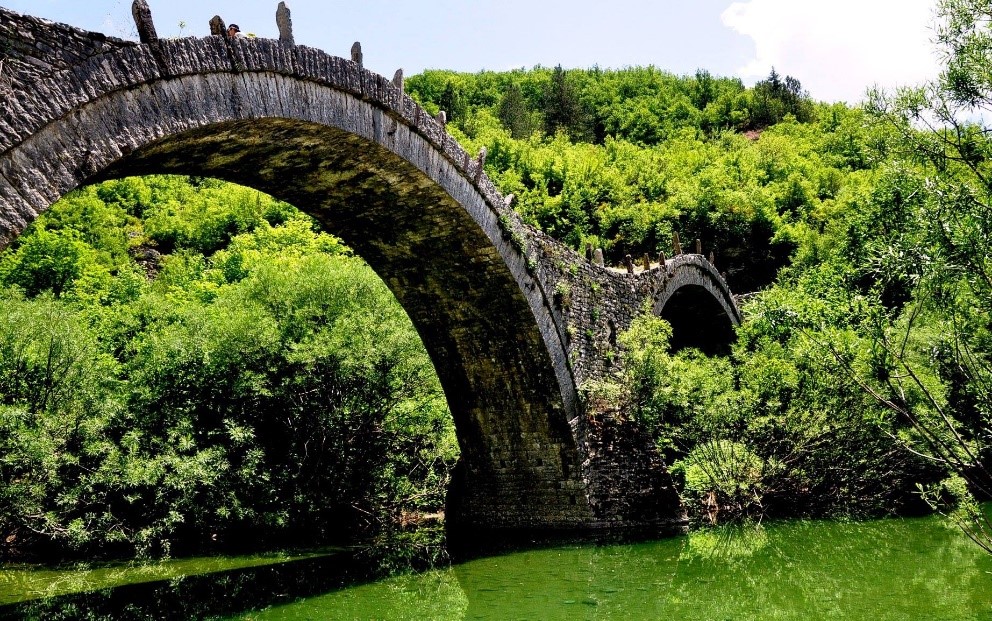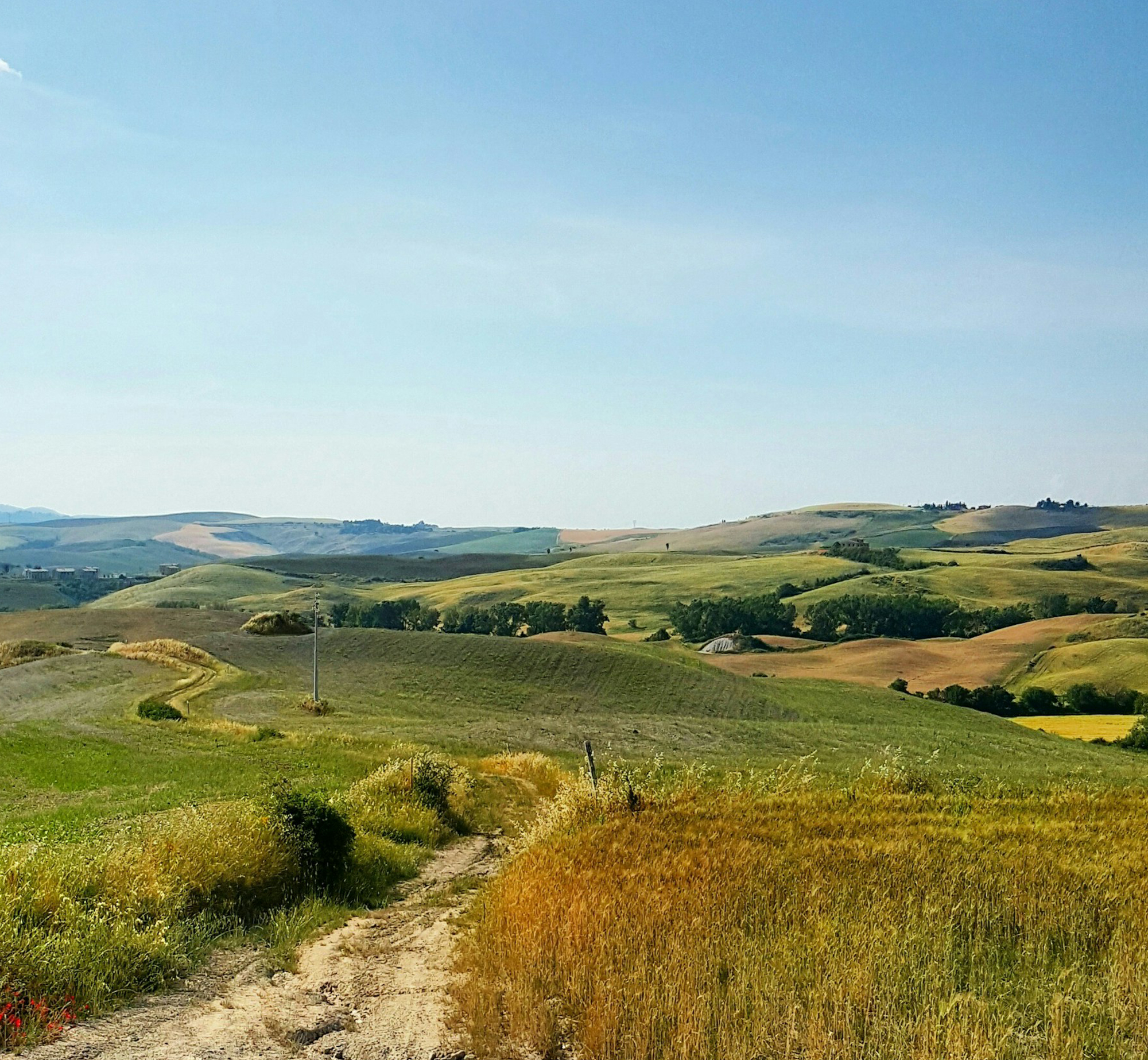Zagori, Greece
Territory: Mountainous
Inhabitants: 3,800
Area: 995.3 sqkm
Main occupations: Tourism and livestock farming
Protected areas: Northern Pindos National Park, Vikos–Aoös National Park, Vikos Aoos UNESCO Global Geopark, Mount Mitsikeli, Mt Tymphe, Valia Kalda, Vikos Gorge, Voidomatis river, the Aoos ravine
EcoMuseum Zagori was founded in 2014 as a social cooperative enterprise to manage the protection and valorisation of the natural and cultural heritage of the area to the benefit of local sustainable development. Its central principle is that an area’s monuments should remain in situ as a living testament to a specific era. Here visitors learn about various aspects of social life, production processes and the socio-economic and natural history of the region. At the same time, they are given the opportunity to interpret the spiritual, social and economic evolution of the local population which is directly connected to the natural environment and its effect on the definition of its identity. EcoMuseum Zagori has the role of an educational and local development hub, serving as a reference point between visitors, the local community and local governance actors. We offer soundwalks in nature, guided tours at transhumance routes, tours at the stone bridges and villages of the area, trail trekking and educational programs for schools. Our activities are designed to give full experience of the place and to transmit its unique power and knowledge.
The main pilars of the Ecomuseum’s focus is the sustainability and the participatory biodiversity conservation of the protected areas and the equal accessibility to cultural and natural heritage. EcoMuseum Zagori has implemented the EU funded participatory biodiversity conservation project EchoLoci, for the preservation and valorization of pastoral routes. We raise awareness on the importance of accessibility in natural sites, through our project Listen-Touch-Feelm an educational solution designed for visually impaired people, that promotes an inclusive landscape approach by applying innovative tools, towards an inclusive interpretation of the natural and cultural heritage of Vikos-Aoos Georpark.

Our ambition
In RURACTIVE we aim at exchanging knowledge, enhancing development processes and methods through international consultation, introducing our territory to a wider European context, mobilising local governance structures towards EU rural development policies and best practices, and building partnerships and networks.
We have identified key development areas to propel sustainable and holistic development and address contemporary challenges:
- High tourism seasonality and uneven development between villages due to the lack of integrated tourism products and mobility infrastructure
- Local unemployment and increased demographic degradation due to ageing and lack of women in the territory
- Obvious climate change with increased summer temperatures and scarce water resources
- Insufficient public transport connectivity and poor access to health care and primary needs goods.
Our primary focus lies in the realms of agri-food and agroecology, and multimodal mobility. In alignment with broader regional development goals, these focal points aim to harness innovation and technology for the benefit of the community. By addressing challenges in agri-food sustainability and enhancing mobility options, our region aspires to create a resilient and future-ready environment that balances economic growth with environmental stewardship and social well-being.
We promote agri-tourism initiatives that connect visitors with local farmers, showcasing traditional and sustainable food production methods.
We aim to enhance nature-based and cultural tourism by developing immersive and educational experiences. This includes tours in transhumance trails, stone bridges, and villages, as well as soundwalks in nature. Our aim is to integrate local cultural narratives into these tours, offering visitors a deep understanding of the area's cultural and natural heritage. By promoting sustainable tourism practices, we ensure that tourism benefits both the local community and the natural environment.
Our focus on cultural innovation involves preserving and promoting the unique cultural heritage of the Zagori region. We have created a Soundscape application for accessibility of visually impaired people in the context of equal accessibility to cultural and natural heritage. Educational programs for schools incorporate traditional knowledge and contemporary cultural expressions, ensuring the transmission of cultural heritage to future generations. By blending tradition with innovation, we aim to celebrate and sustain the region's cultural identity.
This makes us unique
The Zagori region, nestled in the Pindus Mountain range, is a border mountainous territory in Northwestern Greece. It has an area of approximately 1,000 sqkm and contains 46 villages known as Zagori villages. In terms of natural heritage, Zagori hosts two National Parks, the river Aoos and the Vikos - Aoos UNESCO Global Geopark around the Vikos Gorge that contribute to the region's ecological diversity, providing a sanctuary for a myriad of flora and fauna. The unique and authentic area is characterised by traditional stone architecture, slate-roofed houses and cobbled streets. The numerous 18th-century stone bridges further accentuate the region's commitment to preserving its cultural and architectural legacy.
The diverse natural environment of Zagori is exemplified by lush landscapes and dense forests, with numerous outdoor opportunities for hiking, mountain biking, rafting.
Complementing its natural endowments, Zagori boasts a cultural heritage of immense depth, reflecting historical significance and the traditions of its inhabitants. Its rich cultural heritage contributes to the region's distinct identity and includes traditional music, gastronomic landscape, hospitality of people, folklore celebrations and artifacts.
In essence, Zagori's natural and cultural heritage converge to create a unique destination where the preservation of the environment harmonises with a profound respect for historical and cultural continuity. This synthesis contributes to the region's allure, offering visitors a multifaceted experience that celebrates both the pristine beauty of nature and the rich tapestry of human history and tradition.
Local Task Force
UNESCO World Geopark Vikos-Aoos
Development Epirus S.A.
Recreational Association of Itea Liapi
Region of Epirus
Panhellenic Association of the Blind




